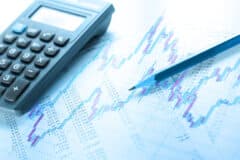“This time is different.”
It’s a phrase that echoes through every market downturn, every geopolitical shift, every new technological revolution. And lately, we’ve been hearing it a lot more – from headlines warning of the fall of the U.S. dollar, to debates about AI reshaping the workforce, to whispers of a global power shift.
And maybe… this time is different.
But here’s the truth that every long-term investor must confront: we don’t know.
We’ve never known.
And that’s why it’s so important to stay focused on what we can control.
A Longer View of History
The past 100 years have been, by most measures, a remarkable run – defined largely by U.S. supremacy in global finance, innovation, and military power.
But if we zoom out, history reminds us that this dominance is the exception, not the rule.
Global superpowers and their reserve currencies have come and gone:
- The Dutch guilder reigned in the 1600s
- The British pound sterling ruled the 1800s
- And today, the U.S. dollar wears the crown
Empires rise. Empires fall. World orders change.
This isn’t doomsday talk – it’s just history.
Acknowledging that doesn’t mean running for the hills. It just means being humble enough to accept that we don’t control what comes next.
What we do control is how we prepare.
We’ve Been Here Before
Let’s take a walk through moments in history that felt existential to those living through them:
- 1910s: World War I and the Spanish Flu pandemic
- 1930s: The Great Depression: 25% unemployment, bank runs, bread lines
- 1940s: World War II and the dawn of nuclear weapons
- 1971: U.S. breaks from the gold standard; inflation fears spike
- 1970s: Stagflation, oil shocks, energy rationing
- Cold War era: Ongoing fear of global nuclear catastrophe
- 1987: Black Monday: the market drops over 20% in a single day
- 2000: Dot-com bubble bursts, wiping out trillions
- 2008–09: The Global Financial Crisis topples the banking system
While we weren’t there to experience all of them, each of these moments likely felt like the beginning of a new, more dangerous era.
Each one carried the weight of “this time is different.”
And yet, over time, markets recovered. Innovation continued.
Long-term investors were rewarded, not for predicting the future, but for staying the course when it was hardest to do so.
What’s Different Now?
To be clear, the concerns today are valid:
- China’s rise and shifts in geopolitical power
- Climate change and ecological pressures threatening global stability
- Artificial intelligence disrupting industries and labor
- Aging populations and demographic imbalances across much of the developed world
- Global debt loads reaching historic levels
There’s plenty to watch, and even more we don’t yet see.
But reacting out of fear rarely serves long-term goals. The better path is preparation, with intention and discipline.
Investor Playbook
When the world feels unpredictable, the best investors zoom in on what they can control:
- Savings rate → Automate it. Prioritize flexibility and freedom.
- Spending rate → Avoid lifestyle creep. Align money with values.
- Portfolio structure → Globally diversified, low-cost, and boring (on purpose).
- Taxes and fees → Reduce drag. Let compounding do its thing.
- Behavior → Avoid emotional decisions masked as “gut instincts.”
- Presence → Don’t defer life. Live now. Invest in your health, relationships, and personal growth.
Final Thoughts
Markets climb a wall of worry. Always have. Always will.
Yes, this time might be different – but not necessarily in the way we think.
The most dangerous idea isn’t that the world is changing… it’s that we assume we know how.
At wHealth Advisors, we help our clients live their wealthiest, healthiest, and happiest lives.
Because a plan rooted in what truly matters doesn’t need a crystal ball.
It simply needs clarity on where you’re going, discipline in controlling the controllable, and the intestinal fortitude to ride the never-ending wave of uncertainty.






